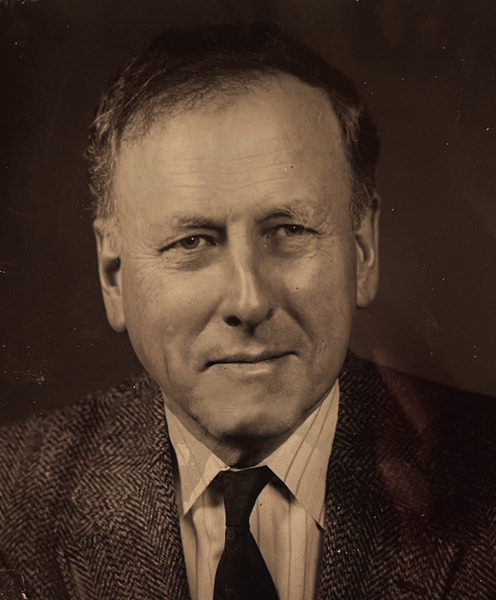Loren Graham
Loren Graham, Alger County’s northernmost resident for over five decades, passed away in Boston on Dec. 15 at the age of 91. He is survived by his wife, Patricia (Pat) Albjerg Graham, and their daughter, Meg Graham Peterson.
Alger County will remember Loren and Pat as the visionary couple who bought the abandoned and nearly destroyed remnants of the North Light Station on Grand Island in 1972 and took it upon themselves to restore it into a habitable private summer home which, in 1985, earned a place on the National Registry of Historic Places. The lighthouse has now been left to the public through a trust as a museum.
Popular Books
Local residents will also remember that Loren Graham put Alger County on the radar with two very popular books, “A Face on the Rock,” published in 1995, and “Death at the Lighthouse: A Grand Island Riddle,” published in 2013.
The first book traces the history of Chippewa Indians who lived on Grand Island’s Trout Bay in the late 18th and 19th centuries, disappearing to the mainland by the early 1900s. The prologue credits the local Munising/Au Train descendants of the tribe for providing information for the story as well as the journals and oral recollections of Pat’s grandfather, the Rev. Columbus Horatio Hall, a Baptist minister who first started coming to the island from Indiana in 1883, making friends with Powers of the Air, the book’s main character. In 2000, he was awarded the Follo Award of the Michigan Historical Society for this invaluable contribution to Michigan history.
The second book attempts to solve the mystery of the death of North Light keeper George Genry and his assistant, Edward Morrison, whose bodies were discovered on two separate beaches east of the North Light in June 1908; the latter mutilated to the point that he was recognized only by the distinguishing 13-star tattoo on his left arm.
A third book was co-authored by Loren with Katherine Carlson: “Grand Island and its Families,” published in 2007.
Grand Island
Born and raised in the coal mining area of rural southwestern Indiana, Loren first visited Grand Island in the mid-1950s at the arm of his fiancée, Pat, whose family had continued her grandfather’s traditional summer treks to Trout Bay. Loren and Pat met each other as undergrads at Purdue University working as editor and assistant editor for the student newspaper. Consequently, Loren found Pat, Grand Island and Alger County to be loving relationships of over 70 years.
Online tributes and numerous articles provide a myriad of citations for both Loren and Pat as they have distinguished themselves with Ph.D.s in the fields of history and education with their hard-earned accomplishments. Loren’s resume includes serving in the U.S. Navy for three years, retiring as a lieutenant. His B.S. in chemical engineering led him next to Midland, Michigan, working for Dow Chemical.
After three years, Loren decided that engineering wasn’t going to be his continuing career path and found his true passion take shape at Columbia University, where he focused his master’s and doctoral studies on the Soviet and Marxist philosophy of science and science politics, which began with him participating in a year-long exchange program between the United States and the Soviet Union in Moscow.
Loren’s research and dedicated study earned him professorships at Indiana University, Columbia, Harvard and Massachusetts Institute of Technology. He is remembered to this day as the leading scholar on Russian science. His distinguished achievements include numerous awards and honors for his research, fellowships, published works and service as a contributing member of several honorary societies.
Scholar
Yet, Loren’s dedication to the advancement of science, history and the strengthening of world political and scientific relations lies second to the lasting impressions of Loren by his peers in both Russia and the U.S., students, colleagues and great numbers of friends (including those in Alger County) who will always remember him as the most “compassionate of human beings,” as quoted by Mark Kramer, director of the Davis Center at Harvard in his tribute to Loren Graham.
This informative article is easily found online and gives a detailed summary of Loren Graham’s work and lifetime of achievements and interests. It can most sincerely be said that no one would dispute that these many endeavors of Loren’s were always pursued with the foremost purpose of benefiting others, an epitaph that puts him at the head of the class.
